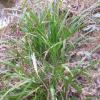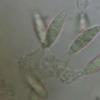
24-02-2026 11:01
Gernot FriebesHi,found on a branch of Tilia, with conidia measur

23-02-2026 11:22
Thomas Læssøehttps://svampe.databasen.org/observations/10584971

29-11-2024 21:47
Yanick BOULANGERBonjourJ'avais un deuxième échantillon moins mat

07-02-2023 22:28
Ethan CrensonHello friends, On Sunday, in the southern part of

19-02-2026 17:49
Salvador Emilio JoseHola buenas tardes!! Necesito ayuda para la ident

19-02-2026 13:50
Margot en Geert VullingsWe found this collection on deciduous wood on 7-2-
Eupropolella en Iris pseudacorus
Javier Ormad,
14-03-2014 22:40
Apotecios intradérmicos foliares, que se distinguen por manchas oscuras en la superficie de la hoja, de hasta 0.5 mm de diámetro. Picnidios, con ostiolos negruzcos y algunos con banda circular blanquecina, que engloban a un himenio formado por sustancia de color naranja.
Hifas con gútulas. Esporas fusiformes, con 4-5 grandes gútulas en su interior y algunos con restos adheridos de células hifales, de 13.15 x 3-4 micras. Membrana de pared, con textura angularis y con inclusiones en algunas células.
En hojas secas de Iris pseudacorus.
Me parece Eupropolella celata.
¿Que os parece a vosotros?
Saludos
Hi to all!
Apothecia foliar intradermal, distinguished by dark spots on the surface of the sheet up to 0.5 mm in diameter. Pycnidial, with blackish ostioles and some banded circular whitish hymenium encompassing a substance consisting of orange.
Gútulas hyphae. Fusiform spores 4-5 gútulas large inside and some with adherent cells of hyphal, 13.15 x 3-4 microns. Membrane wall with texture angularis with inclusions in some cells.
In leaves of Iris pseudacorus.
I think Eupropolella celata.
What you think about you?
Best regards!
Javier
Hans-Otto Baral,
14-03-2014 23:18

Re : Eupropolella en Iris pseudacorus
Hola Javier
where did you read about an anamorph? Euprop. celata is a synonym of Hysternaevia scirpina. I know this only from the teleomorph.
Zotto
where did you read about an anamorph? Euprop. celata is a synonym of Hysternaevia scirpina. I know this only from the teleomorph.
Zotto
Javier Ormad,
14-03-2014 23:49
Re : Eupropolella en Iris pseudacorus
Teleomorph Deuteromycota, sure!
I got confused with the terms of anamorph!
I'm starting with these. I will correct, but not if i do it well!
Best Regards
I got confused with the terms of anamorph!
I'm starting with these. I will correct, but not if i do it well!
Best Regards
Luc Bailly,
14-03-2014 23:56
Re : Eupropolella en Iris pseudacorus
Hi Javier,
Sure it's on Iris and not on Carex pendula or another large Carex?
EDIT: Nag Raj lists it on Iris also.
The colors of conidia's in mass (orange), that of the peridium (bottle green) and the shape & size of conidia's remind me of Neottiospora caricina that's common here in Belgian Ardenne on Carex pendula.
See Nag Raj, attached pages.
The mucus ring at one end of the conidia's is well visible in the photos you posted.
Cheers, hope this helps - LUC.
Sure it's on Iris and not on Carex pendula or another large Carex?
EDIT: Nag Raj lists it on Iris also.
The colors of conidia's in mass (orange), that of the peridium (bottle green) and the shape & size of conidia's remind me of Neottiospora caricina that's common here in Belgian Ardenne on Carex pendula.
See Nag Raj, attached pages.
The mucus ring at one end of the conidia's is well visible in the photos you posted.
Cheers, hope this helps - LUC.
Javier Ormad,
15-03-2014 00:45
Luc Bailly,
15-03-2014 01:57
Re : Neottiospora caricina on Carex pendula.
Hi Javier,
The host is indeed Carex pendula, with carenate leaves: http://cdrfdr.pagesperso-orange.fr/Valbonne/BOT/FE_Carex%20pendula/laiche1jean%20tosti%20gen.jpg
Iris pseudacorus has almost flat and much broader leaves: http://lesjardinsdepomone.be/wp-content/gallery/impblog/dyn009_original_450_338_jpeg_2617294_0b51fe984bf488791c00206b5c61d2cc.jpg
As for Neottiospora caricina, it's an anamorph, a coelomycete, and one of the easiest ones to distinguish IMHO: you can't miss its colors.
The latest photo you posted of the conidia's is very typical.
Cheers - LUC.
The host is indeed Carex pendula, with carenate leaves: http://cdrfdr.pagesperso-orange.fr/Valbonne/BOT/FE_Carex%20pendula/laiche1jean%20tosti%20gen.jpg
Iris pseudacorus has almost flat and much broader leaves: http://lesjardinsdepomone.be/wp-content/gallery/impblog/dyn009_original_450_338_jpeg_2617294_0b51fe984bf488791c00206b5c61d2cc.jpg
As for Neottiospora caricina, it's an anamorph, a coelomycete, and one of the easiest ones to distinguish IMHO: you can't miss its colors.
The latest photo you posted of the conidia's is very typical.
Cheers - LUC.
Javier Ormad,
15-03-2014 16:08
Re : Eupropolella en Iris pseudacorus
Fixed error. Carex pendula. Then I remembered from summer yellow lilies in that area and had related.
Again thank you very much, Luc
Javier
Again thank you very much, Luc
Javier

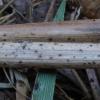
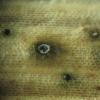
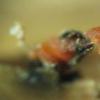
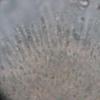
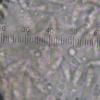
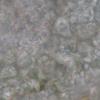
 Neottiospora caricina description
Neottiospora caricina description